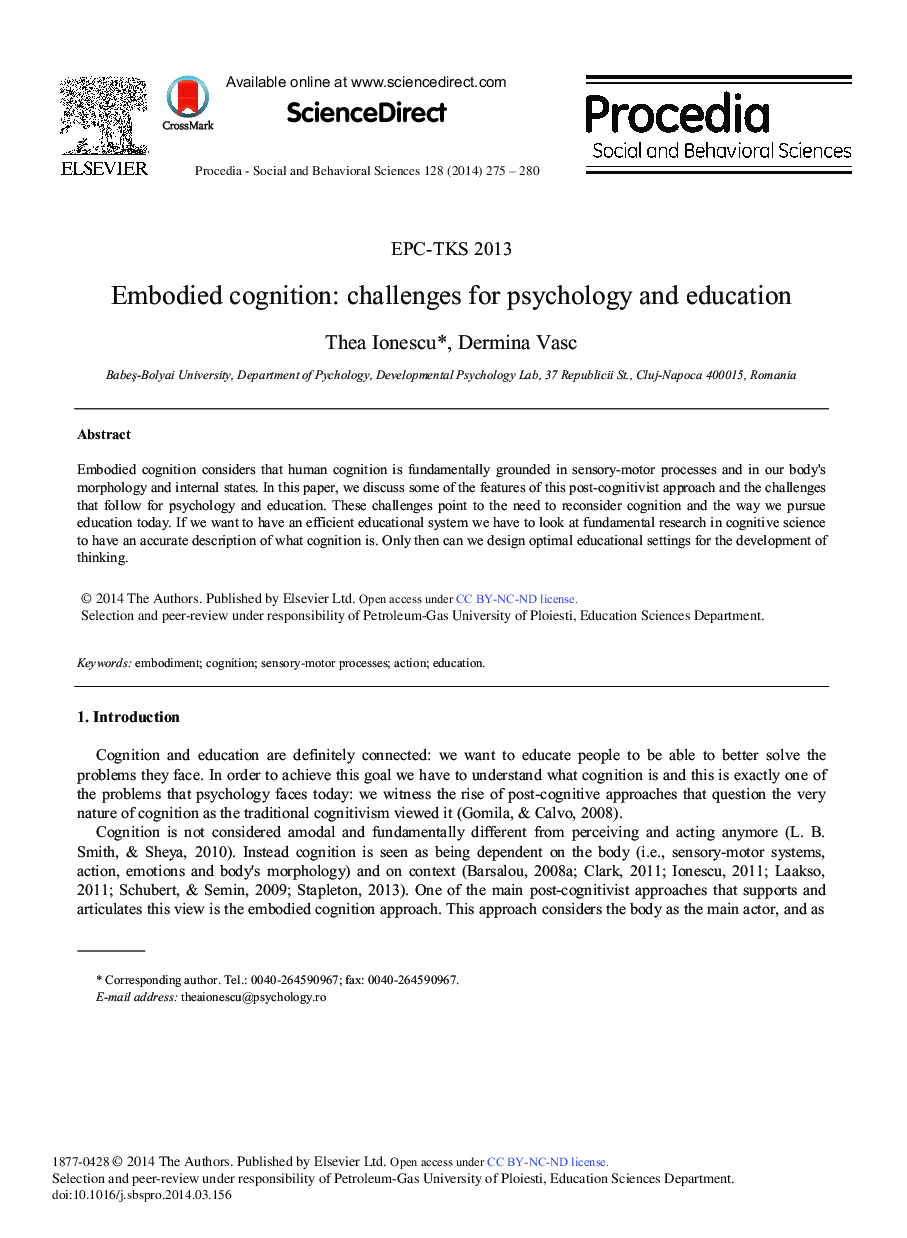| Article ID | Journal | Published Year | Pages | File Type |
|---|---|---|---|---|
| 1115552 | Procedia - Social and Behavioral Sciences | 2014 | 6 Pages |
Abstract
Embodied cognition considers that human cognition is fundamentally grounded in sensory-motor processes and in our body's morphology and internal states. In this paper, we discuss some of the features of this post-cognitivist approach and the challenges that follow for psychology and education. These challenges point to the need to reconsider cognition and the way we pursue education today. If we want to have an efficient educational system we have to look at fundamental research in cognitive science to have an accurate description of what cognition is. Only then can we design optimal educational settings for the development of thinking.
Related Topics
Social Sciences and Humanities
Arts and Humanities
Arts and Humanities (General)
